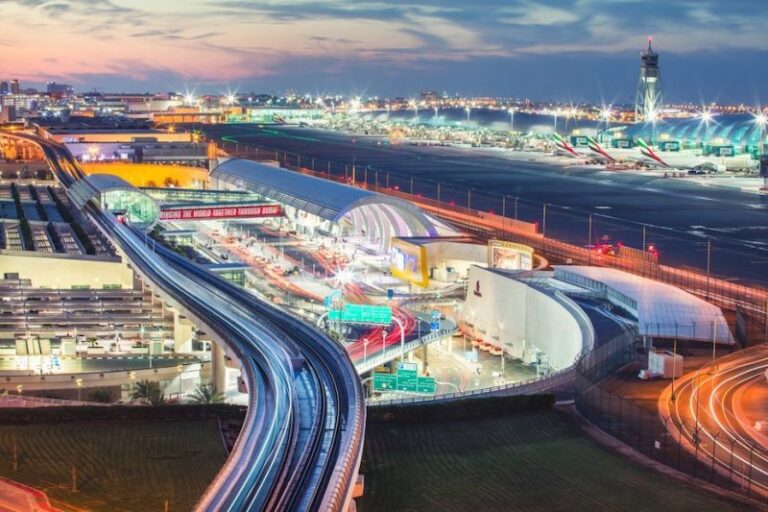Dubai Airports has published a forecast for annual passenger traffic at Dubai International (DXB) to reach 86.8 million in 2023. The figure surpasses 2019 traffic, propelled by strong growth throughout the first three quarters of the year and in anticipation of an exceptional surge in guest numbers in the final quarter of this year.
DXB began the second half of 2023 with a strong momentum in air travel numbers, with average monthly traffic reaching 7.6 million. This figure corresponds to the flier numbers pre-pandemic levels throughout the third quarter.
The world’s largest hub recorded 22.9 million passengers in Q3 – the highest quarterly traffic since 2019, taking the total year-to-date traffic for the first nine months of the year to 64.5 million passengers. This figure is a growth of 39.3 per cent compared to the same period in 2022 and one per cent above 2019.
“We’re thrilled but not entirely surprised that DXB is all set to surpass the pre-pandemic milestone well ahead of our initial projections by almost a year. Our outlook for the remainder of this year and the next remains optimistic. Teaming up with our strategic partners, we’re ready for the challenge to continue to exceed guest satisfaction amidst the continuous surge in traffic,” said Paul Griffiths, CEO of Dubai Airports.
Top destinations
With 8.9 million passengers in the first nine months of the year, India was DXB’s top country destination in terms of traffic volume, followed by Saudi Arabia with 4.8 million passengers, and the UK (4.4 million passengers). Other country destinations of note include Pakistan with 3.1 million passengers, the US (2.7 million) and Russia (1.8 million).
The top cities by traffic were London (2.7 million passengers) and Riyadh (1.9 million), closely followed by Mumbai (1.8 million) and Jeddah (1.7 million passengers).
Dubai Airports’ strong performance
DXB’s baggage handling system processed a total of 57.5 million bags in 2023 with a success rate of 99.8 per cent – a rate of 2.5 mishandled bags per 1,000 passengers – no mean feat for the world’s biggest hub for international traffic. In terms of baggage delivery on arrival, 91 per cent of all baggage was delivered within 45 minutes to the guests.
The baggage volume in 2023 represents 106.07 per cent of the 2019 baggage volume at DXB.
The average waiting time at passport control queues was less than 11 minutes for 96.4 per cent of the arriving passengers and 95.1 per cent of passengers queued for less than six minutes at departure passport control. The average queue times at security-check on departures was less than four minutes for 98.4 per cent of total passengers.
Cargo
Cargo continued to gain momentum in the third quarter registering a surge of 12.3 per cent year on year, to reach 446,400 tonnes. The strong performance this year has helped level out a double-digit contraction in cargo recorded at the end of last year.
The hub recorded 1.3 million tonnes of cargo in the first nine months of the year, registering a minor decline of under 1 per cent.
Flights
Flight movements in Q3 surged by 5.1 per cent in the third quarter to reach 106,000. DXB handled 308,000 in total flight movements between January and September, up 25.2 per cent year-on year.
Outlook
Dubai Airports said it expects record-breaking numbers to continue in Q4 of this year and well into 2024. To accommodate growth and to achieve the company’s ambition of revolutionising the guest journey at DXB, Dubai Airports is undertaking a strategic project to expand infrastructure capacity while enhancing operational efficiency.
The airport has a current capacity of 100 million passengers annually. It expects with the deployment of innovative technology, expansion and refurbishment of existing infrastructures and more efficient use of its space and resources, the capacity can be increased to 120 million.
Griffiths added, “Our team embarked on a remarkable journey, navigating fresh challenges during the recovery period and swiftly revitalising the business. Instead of settling, we’re dedicated to exploring inventive solutions, reimagining traditional concepts, integrating state of the art technology, and addressing the mammoth challenge of sustainability.”
As Dubai tops the list of cities with the highest spending by international visitors with a total earning of $29.4bn, and the emirate at the forefront of deploying the latest technologies, Dubai Airports has continued to work closely with its stakeholders to provide guests the experience they expect from Dubai.



